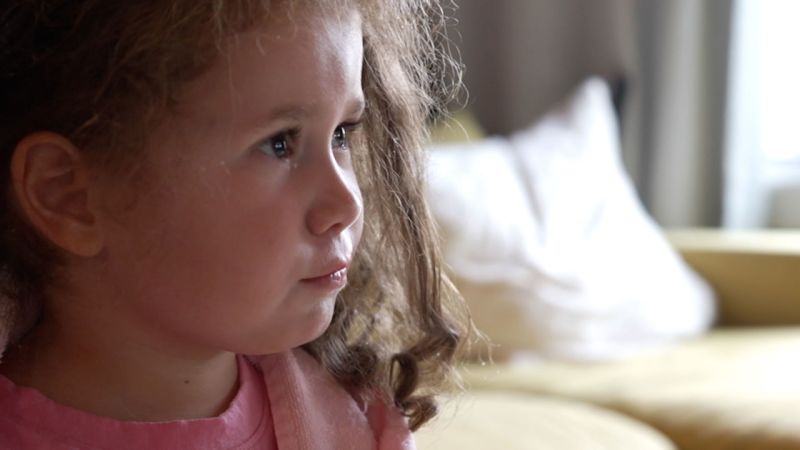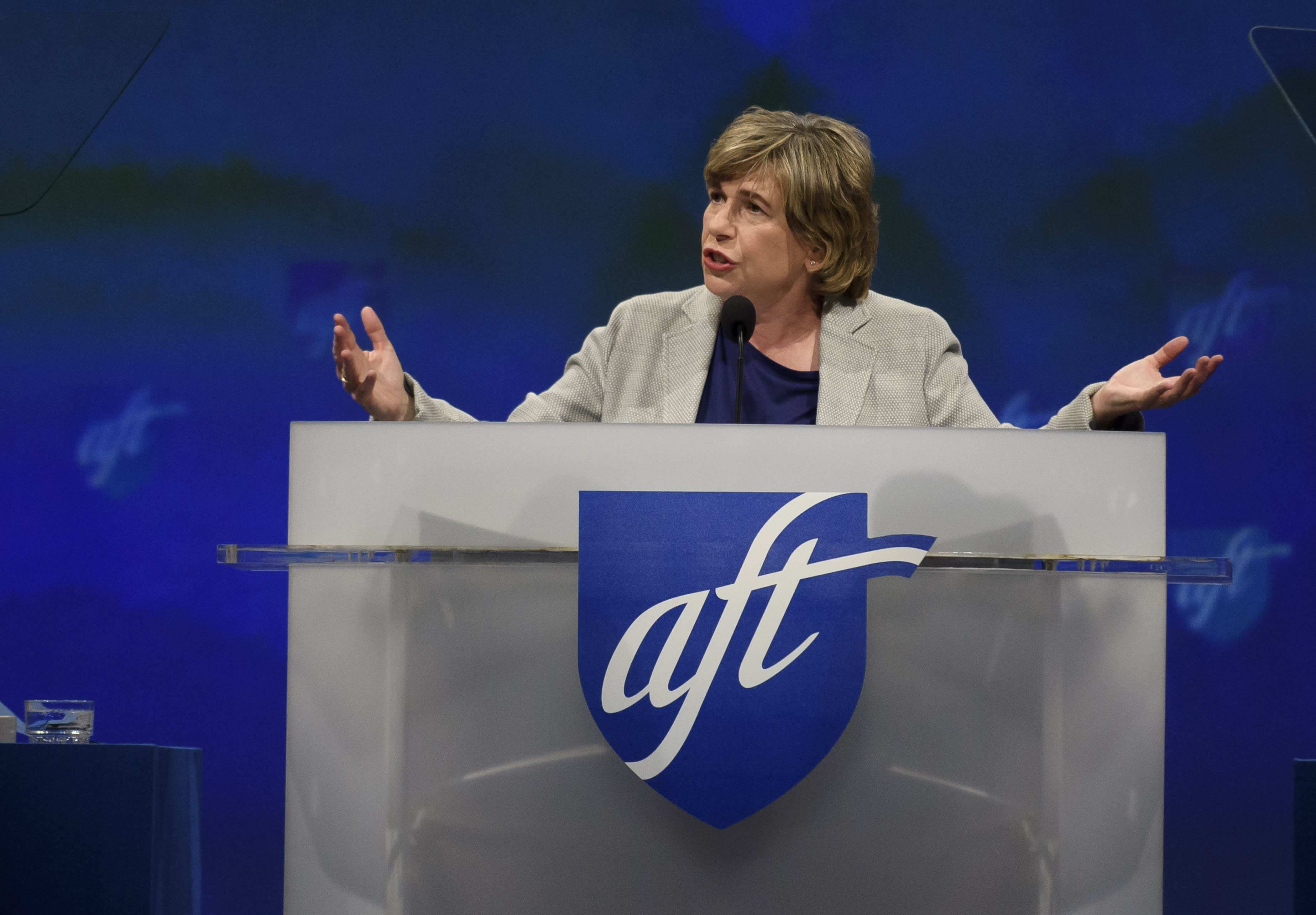‘The rug has been pulled out from under us’: Cancer research funding turmoil leaves families scrambling

For two years, 5-year-old Juliette Lesko has battled an incurable form of brain cancer, ependymoma. After enduring two brain surgeries, 30 sessions of radiation and two relapses, she is now being treated with an experimental drug, though it is unclear whether it is working.
The Leskos won’t know until Juliette receives another brain scan, scheduled for later this month. If it shows the tumor has grown, “it means the treatment is not working. We need to try something new and we need to try it fast,” her father, Jim Lesko, told CNN.
But just as he was preparing to inquire about a clinical trial in Texas that offers a different approach for treating Juliette’s cancer, the trial abruptly stopped accepting patients.
“It’s like the rug has been pulled out from under us,” Lesko said.
The Texas trial the Leskos had hoped to sign up for was being run by the Pediatric Brain Tumor Consortium, or PBTC, a national network of top doctors, scientists and hospitals that provides children access to experimental treatments through clinical trials.
In August, the National Cancer Institute, the federal government’s primary agency for cancer research and training, announced that it would no longer fund the consortium as it had for the past 25 years.
The change comes amid broad turmoil within cancer research and publicly funded science under the Trump administration. With deep cuts to National Institutes of Health grants, dramatic staffing losses and a leadership vacuum at the National Cancer Institute, researchers are warning that cancer science could be set back for years to come — and that families like the Leskos will pay the price.
A spokesperson for Department of Health and Human Services, which oversees the National Cancer Institute and its parent agency, the NIH, said cutting federal financial support for PBTC would allow resources to be “more effectively used,” and that it would not disrupt funding. Its clinical trials will be transferred to another network that focuses on a wide range of pediatric cancers, which will “streamline trial development and enhance capacity for pediatric brain tumor studies,” according to HHS.
The decision was not related to President Donald Trump’s larger government-wide cuts and had been discussed prior to the new administration, a source with knowledge of the situation told CNN. The person asked not to be named as they were not authorized to speak on the subject.
More than 10 pediatric oncologists, scientists and pediatric cancer advocates told CNN the decision to defund PBTC is just the latest pile-on adding to anxiety in the cancer research community, and the pediatric cancer community, which has been historically underfunded by the federal government.
“There is a feeling of despair; how are we going to make this work?” said Eugene Hwang, a pediatric neuro-oncologist at Children’s National Hospital in Washington, DC. “Pediatric brain cancer was already a tough problem and now it’s becoming harder — not because the cancer has gotten worse but because our ability to do research has become limited.”
The broader disruption
Six PBTC clinical trials have stopped enrolling new patients, including the Texas-based ependymoma immunotherapy the Leskos were interested in for Juliette, according to Ira Dunkel, a pediatric oncologist who chairs the consortium.
Other suspended trials include one for a noninvasive medical device that could disrupt cell division in tumors of rapidly growing cancers, and an experimental immunotherapy that alters a patient’s white blood cells to fight cancer.
About 15 total patients are enrolled in the studies. In the short term, they can stay in the studies, and the PBTC is “working on how to provide continuity beyond March 31, 2026,” when the funding runs out, Dunkel said. Most trials have between 20 and 30 patients, Dunkel added. This means as many as nearly 200 people are potentially losing out on trials that have stopped enrollment.
Two additional PBTC trials have been delayed in starting.
One of them is a vaccine-based pediatric brain cancer treatment developed by Hwang, the pediatric neuro-oncologist at Children’s National Hospital, and another pediatric oncologist at the University of Florida.
The trial was scheduled to be run by PBTC starting in July 2026.
But even without the disruption to the consortium, Hwang was facing a shortfall in federal funds to pay for making the cancer vaccine that the clinical trial was testing.
NIH grant reviewers scored the proposal he and his research partner submitted in the top 7% of those evaluated, which in a normal year would guarantee funding.
But this year, the NCI has said that “significant budget reductions proposed for FY 2026 in the President’s budget submission to Congress” means it will shift focus to funding only the top 4% of grants for the remainder of 2025.
“This means a lot of really good research won’t get funded for the rest of this year,” Hwang said.
Hwang’s treatment showed effectiveness in shrinking a particularly aggressive and always fatal brain cancer, diffuse intrinsic pontine glioma, known as DIPG, in mice.
A July letter to NCI signed by over 1,000 families and advocates for DIPG research decried the decision not to fund it.
“The science is strong. The promise is real,” they wrote. “Yet due to funding pullbacks, this potentially life-saving research is now at risk of being shut down.”
The belt-tightening also comes amid chaos at the NCI, where layoffs and frustration over cuts have triggered an exodus of clinicians and scientists. The losses have left a vacuum at the NIH hospital where adults and children with cancer are treated at no cost, and data shows the number of patients there have plummeted during the Trump administration.
The acting CEO of the clinical center during its May board meeting attributed the decline to the departure of NIH scientists and researchers and less patient recruitment, according to KFF Health News.
Trump priorities, research cuts
The Trump administration has also suspended research grants it says are out of line with its priorities, such as those that contain diversity, equity and inclusion components. At other times, funding has been pulled from universities for not aligning with Trump’s views on higher education and campus life.
Swept up in these cuts are some pediatric cancer grants, such as a Northwestern University grant investigating why a specific group of chemotherapy drugs causes heart failure in some patients, requiring a heart transplant. The study says the cardiac events are 2.5 times more likely for Black childhood cancer survivors. The grant mentions the words “diverse,” “disparity” and “racial,” according to Grant Witness, a project tracking scientific research federal grants suspended by the Trump administration.
A grant at the University of Southern California that focused on understanding why “children of Latino ethnicity” have the highest risks of acute lymphoblastic leukemia was also suspended. UCLA, meanwhile, was subject to broader grant suspensions by the administration. One study on understanding how molecular and genetic makeup relate to certain health outcomes, including “cancer in Pediatric patients,” was among those suspended. As part of the grant, it proposed recruiting trainees from “diverse backgrounds” who were interested in building “foundational skills in big data analysis.”
The administration is also clamping down on grants going to international researchers who are working in partnership with US scientists. The squeeze is having concerning effects, said Hwang, because “for rare diseases you don’t have the sample size you need for robust research. The patient numbers are usually small, so you need that collaboration to collect tissue samples or run trials in order to get enough children with the disease to treat it and draw conclusions about how the disease is responding to the treatments.”
HHS did not return a request for comment on these grant cuts.
‘Goes beyond hurt’
For families like the Leskos, these policy changes and funding cuts have made them feel like they are running out of options.
It has been particularly jarring, as earlier this year, Trump had highlighted a 13-year-old battling the same brain and spinal cord cancer as Juliette during his speech to a joint session of Congress, where he declared that reversing the trend of increasing childhood cancer rates “is one of the top priorities” for a new presidential commission chaired by Health and Human Services Secretary Robert F. Kennedy Jr.
“I had never seen ependymoma in the news or in a headline anywhere,” Lesko said, adding, “that was actually very hopeful for me to see my child’s rare disease is being acknowledged on a national level.”
But now, to see that a hope for treatment has been cut off, “It’s more insulting than hurtful,” Lesko said. The funding cuts had already “taken the wind out of sails,” he said.
“And now for it to be taken a step further to say, ‘Oh and some of the treatments that were available are abruptly no longer available’ goes beyond hurt,” he added.
“It’s insulting to us, who just want to give our daughter the best chance to live.”
The National Brain Tumor Society, a non-profit advocacy group for the condition, plans to submit a petition to NCI this month that has already garnered over 1,000 signatures asking that the decision to shut PBTC be reconsidered.
EDITOR’S NOTE: The correspondent, whose son died of a pediatric brain cancer, does not have any connection to the Pediatric Brain Tumor Consortium or anyone quoted in this story.
CNN’s Brenda Goodman, Sarah Owermohle and Shania Shelton contributed to this report.



